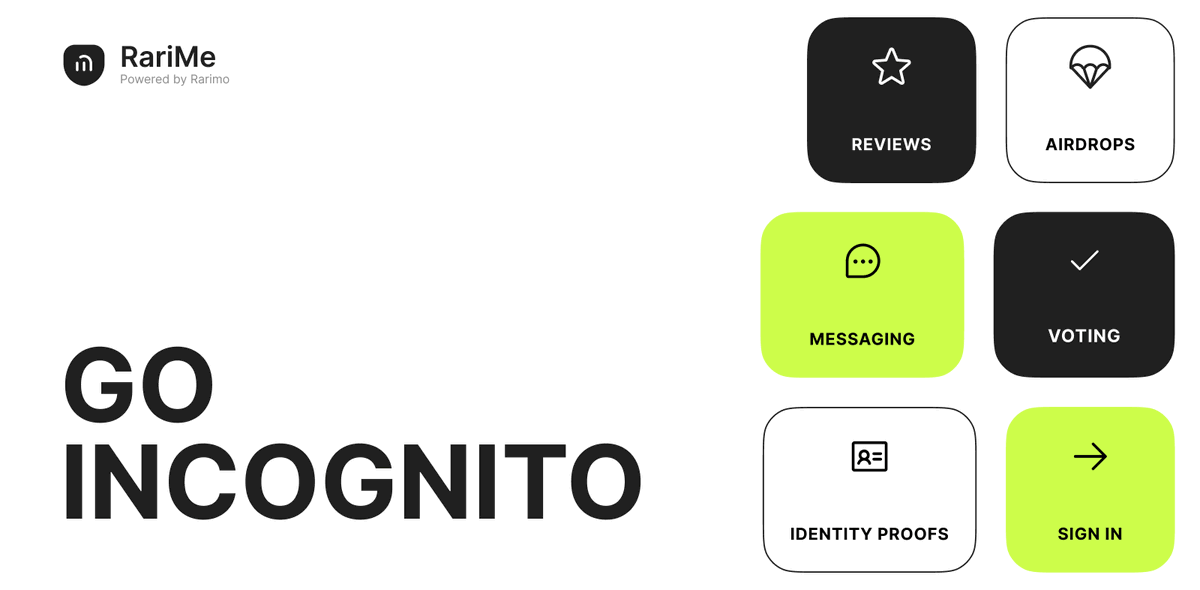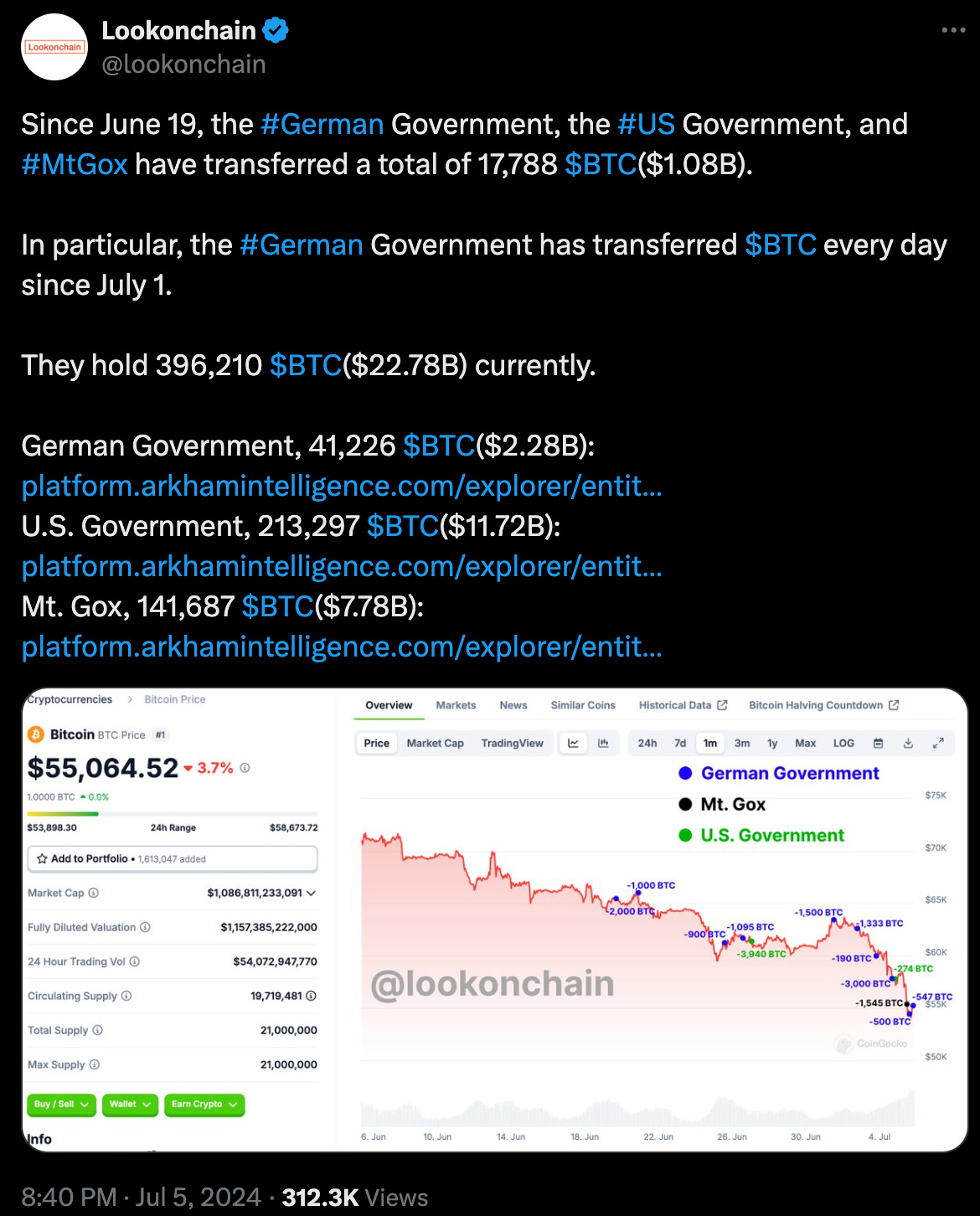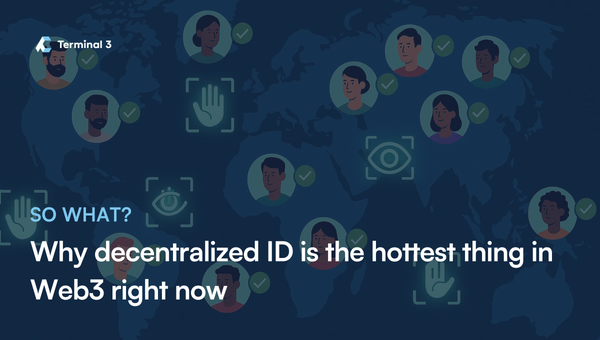Anonymous and accountable: how blockchain can change the game for polls

GM,
Speaking your mind online can come at a price in some countries—even just indicating your preference can be costly in some, too. This week we are looking at how blockchain technology can have a tangible impact on free speech and opinion online.
We’ve written about zero-knowledge proofs (ZKPs) and decentralized identity in past issues. This week, those topics dovetail together as we look at how one company is emerging with a fascinating platform that could help bring people and their opinions together, without fear of repercussions.
Best,
PS: If decentralized identity and data inspires you—and it should!— be sure to check out the Terminal 3 deep dive on Verifiable Private Identity (VPI) which just went live
What’s going on?
Censorship resistance has been at the core of Web3 since its inception. The Bitcoin whitepaper sets out the vision of an asset that is immune to governments worldwide, while one of the key tenets of Ethereum to a tamper-proof internet.
Parts of Web3 decentralized have blossomed—wallets enable users to own and control their assets with full independence, for example—but the larger vision of censorship resistance and full decentralization has remained a fairly distant north star. But one new project is giving us a peek into a very interesting future.
Rarimo Protocol, a project founded out of Kyiv in Ukraine, is pioneering the concept of anonymous polls from authenticated voters using its Freedom Tool. That’s to say it avoids the current problem of online polling—how do we know if a person is eligible to vote and votes aren’t duplicated—whilst also giving voters anonymity to avoid potential repercussions. Authoritarian governments like Russia or China may take action against citizens that express dissent against the regime, for example.
It is early days, but systems like Freedom Tool illustrate the potential of zero-knowledge technology, a topic we wrote about in June, and decentralized identification, which we explained in May.
SO WHAT?
1. More freedom to vote and express opinion
Online polling was revolutionary. The internet gave pollsters a platform to reach thousands if not millions of people’s opinions instantly and without the constraints of face-to-face or postal canvassing. But qualifying who can vote and preventing spam or co-ordinated activity became a new problem.
That’s where blockchain-based voting can make a difference. The concept has been criticized because the blockchain would ultimately be controlled by an organization and therefore be centralized and no better than a secure database, but the differentiator is not that votes are recorded on-chain, but instead that it enables anonymous yet authenticated voters.
Rarimo Protocol’s Freedom Tool is being tested to allow users with Russian passports to sign up and take part in polls focused on the government and regime—an activity that would come with significant risk through existing social platforms
Here’s how it works in the case of Freedom Tool:

With the Freedom Tool, voters can take part in polls that are relevant to them without fear that their participation or answers can be viewed publicly. That can bring about new found freedom of expression that’s potentially particularly powerful in countries with restrictions on freedom of speech.
That’s the theory though and Rarimo’s decentralized identification RariMi platform is in its very early stages. Access, for instance, is limited to those who receive an invitation while the platform scales and adds more features.
2. Censorship-free communication
The concept of safe polling can easily be extended in other ways, chiefly communication and social media.
Russia and China—again the two examples of authoritarian regimes—have taken action against local social networks, and even global ones such as Facebook, over the last decade. China has been particularly stringent, having introduced mandatory real names, forcing users to register accounts with national ID, and mandating platforms themselves to police their user against ‘unlawful’ content. China has jailed users, including a journalist in 2021.
It has gone further before. Back in 2012, Chinese social platforms Sina Weibo and Tencent Weibo were hit with a temporary suspension after tens of millions of users criticized the government for its handling of a fatal train crash. This unprecedented move blacked out all public communication online while Beijing got its house in order.
ZK-based platforms like Rarimo could advance their services to include message boards and communication features further down the line. That could enable users to create and share content anonymous but while ensuring that they are real people to prevent bots spamming. The nature of the service would make it impossible to link posts and users back to real people, as is currently the case now.x

Starting with polls makes sense for Rarimo but it, and other services, could translate into something bigger if they can grow and retain a sizable base of users. One thing in their favor could be if polls can attract users from a particular country, for example, Russia as that would make developing a Russia-centric message board or social platform more seamless.
3. But inherent weaknesses remain
The system is not without its challenges, however.
Already, RariMi has been challenged by the Russian government which has peppered the service’s iOS and Android apps with low quality rates, apparently through astroturfing—or paying for fake reviews.
Low scores may serve to put potential users off, but there’s a bigger danger still: that governments might rule the apps unlawful. In such cases, governments can order Apple and Google to remove apps from their iOS and Android app stores. Both companies adhere to the law when ordered to do so.
Apple, for example, removed VPN apps from the Chinese version of the App Store in order to comply with local law. That’s despite CEO Tim Cook saying he “would obviously rather not remove the apps.” While Apple has complied with similar requests from Russia—removing an app in favor of President Putin’s allies earlier this year—it has also put its foot down. It removed apps from state-backed news outlets in 2022 and even the nation’s top social network, VK, due to UK sanctions.

Critics have long claimed that its approach in China is different because the country is a key market, accounting for 20% of Apple’s sales versus just 2% for Russia. The point remains, however, that censorship-resistant apps are reliant on corporations like Apple and Google for distribution. Without them, reaching an audience largest to deliver impact is hugely challenging.
If all of that falls, there’s also the tried and tested approach of raiding a company and its offices. That famously happened in Russia when the government seized VK in 2014—an ally of Putin acquired the business after a sustained period of pressure which include raids on the office and home of co-founder Pavel Durov, who now operates Telegram and lives across the world.
It is early days for censorship resistant platforms, but Rarimo is one of the emerging players to keep an eye on.
News bytes
The price of Bitcoin has fallen sharply in recent weeks with speculation the cause is selling pressure from Mt Gox, an exchange that became insolvent in 2014 but is returning Bitcoin to its users, and the German government, which is selling Bitcoin that it previously seized
Analysis shows the governments of the UK, Germany and US own nearly $18B in Bitcoin collectively due to raids and confiscations

Taiwan has built a prototype platform for a potential central bank digital currency—it plans to hold multiple hearings and forums next year as its central bank continues to study and develop a CBDC
In an effort to grow the appeal and usage of stablecoins Justin Sun, who created cryptocurrency Tron and owns leading exchange HTX, said he is leading a project to develop a stablecoin that won’t require Ethereum or other tokens for gas fees
Meanwhile, Russia is reportedly considering a move to legalize stablecoins to help it with cross-border transfers
It looks like hackers got access over 30 million phone numbers by attacking Twilio-owned two-factor-authentication app—though Twilio claims the attackers did not access more sensitive information or systems
That’s all for this week!
Share your feedback, questions or requests via email to: sowhat@terminal3.io




